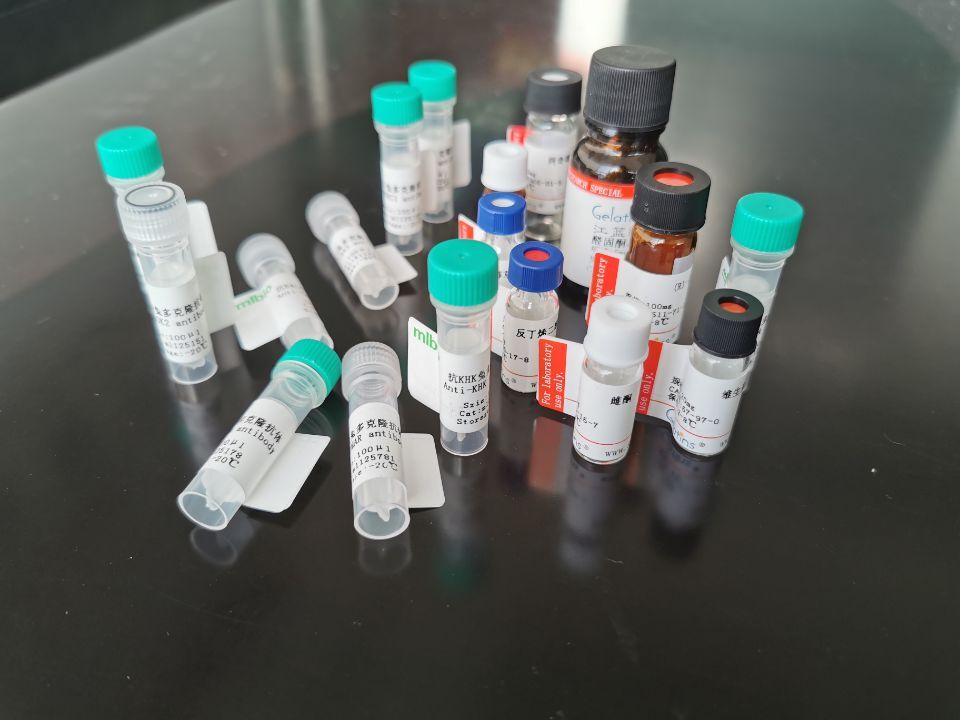中文名稱: KIR2DL3/KIR2DL1/KIR2DL4/KIR2DS4抗原(重組蛋白)
英文名稱: KIR2DL3/KIR2DL1/KIR2DL4/KIR2DS4 Antigen (Recombinant Protein)
別 名: p58; NKAT; GL183; NKAT2; CD158b; NKAT2A; NKAT2B; CD158B2; KIR-K7b; KIR-K7c; KIRCL23; KIR-023GB/NKAT; NKAT1; p58.1; CD158A; KIR221; K
儲 存: 冷凍(-20℃)
相關(guān)類別: 抗原
概 述:
|
Fusion protein corresponding to a region derived from 22-213 amino acids of human KIR2DL3/KIR2DL1/KIR2DL4/KIR2DS4 |
|
Full name: |
killer cell immunoglobulin-like receptor, two domains, long cytoplasmic tail, 3/1/4/ short cytoplasmic tail, 4 |
|
Synonyms: |
p58; NKAT; GL183; NKAT2; CD158b; NKAT2A; NKAT2B; CD158B2; KIR-K7b; KIR-K7c; KIRCL23; KIR-023GB/NKAT; NKAT1; p58.1; CD158A; KIR221; KIR-K64/ G9P; CD158D; KIR103; KIR103AS/ KKA3; KIR1D; NKAT8; CD158I; KIR412 |
|
Swissprot: |
P43628/P43626/Q99706/P43632 |
|
Gene Accession: |
BC032422/ ADQ31987/ NP_002246/ NP_036446 |
|
Purity: |
>85%, as determined by Coomassie blue stained SDS-PAGE |
|
Expression system: |
Escherichia coli |
|
Tags: |
His tag C-Terminus, GST tag N-Terminus |
|
Background: |
Killer cell immunoglobulin-like receptors (KIRs) are transmembrane glycoproteins expressed by natural killer cells and subsets of T cells. The KIR genes are polymorphic and highly homologous and they are found in a cluster on chromosome 19q13.4 within the 1 Mb leukocyte receptor complex (LRC). The gene content of the KIR gene cluster varies among haplotypes, although several "framework" genes are found in all haplotypes (KIR3DL3, KIR3DP1, KIR3DL4, KIR3DL2). The KIR proteins are classified by the number of extracellular immunoglobulin domains (2D or 3D) and by whether they have a long (L) or short (S) cytoplasmic domain. |
 購物車
購物車 幫助
幫助
 021-54845833/15800441009
021-54845833/15800441009
